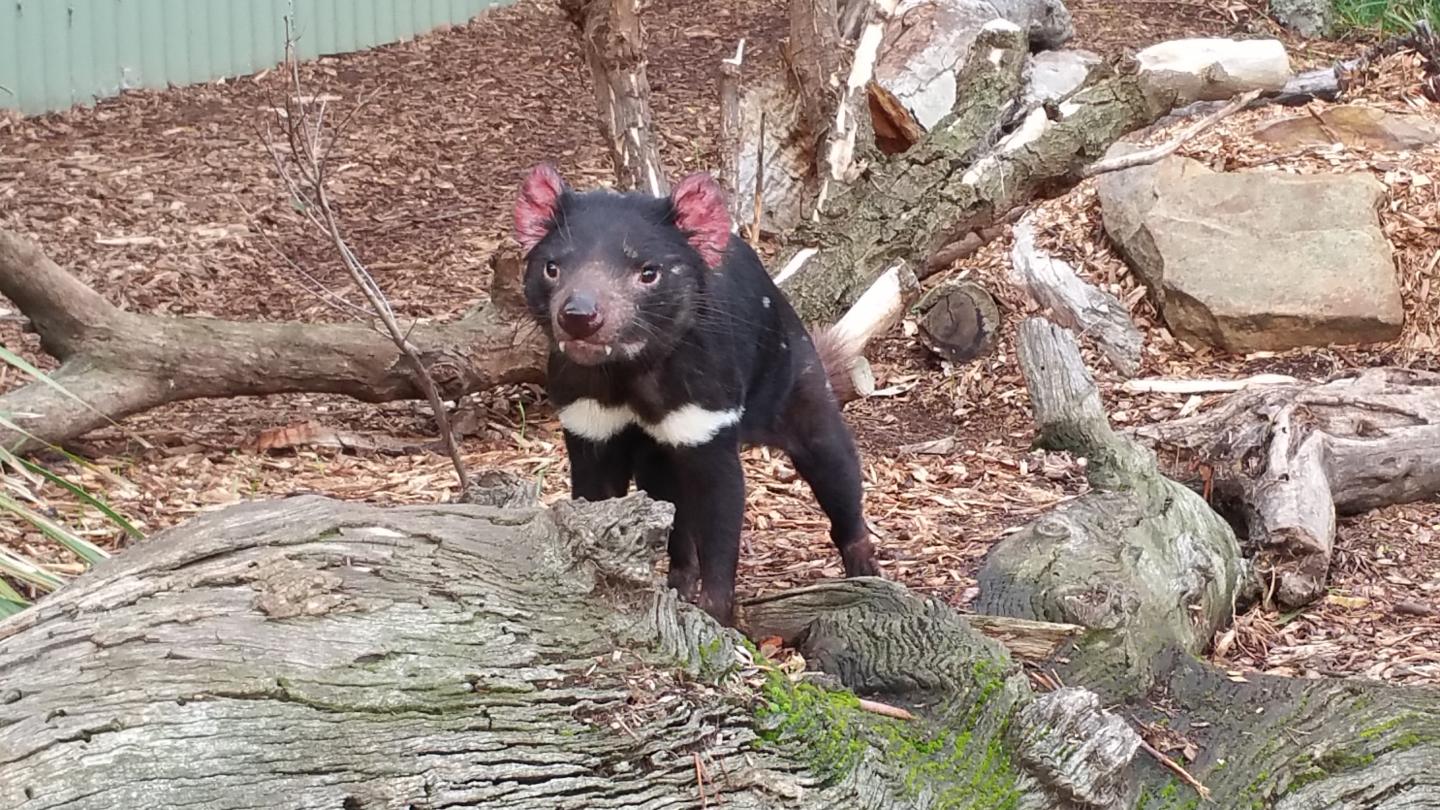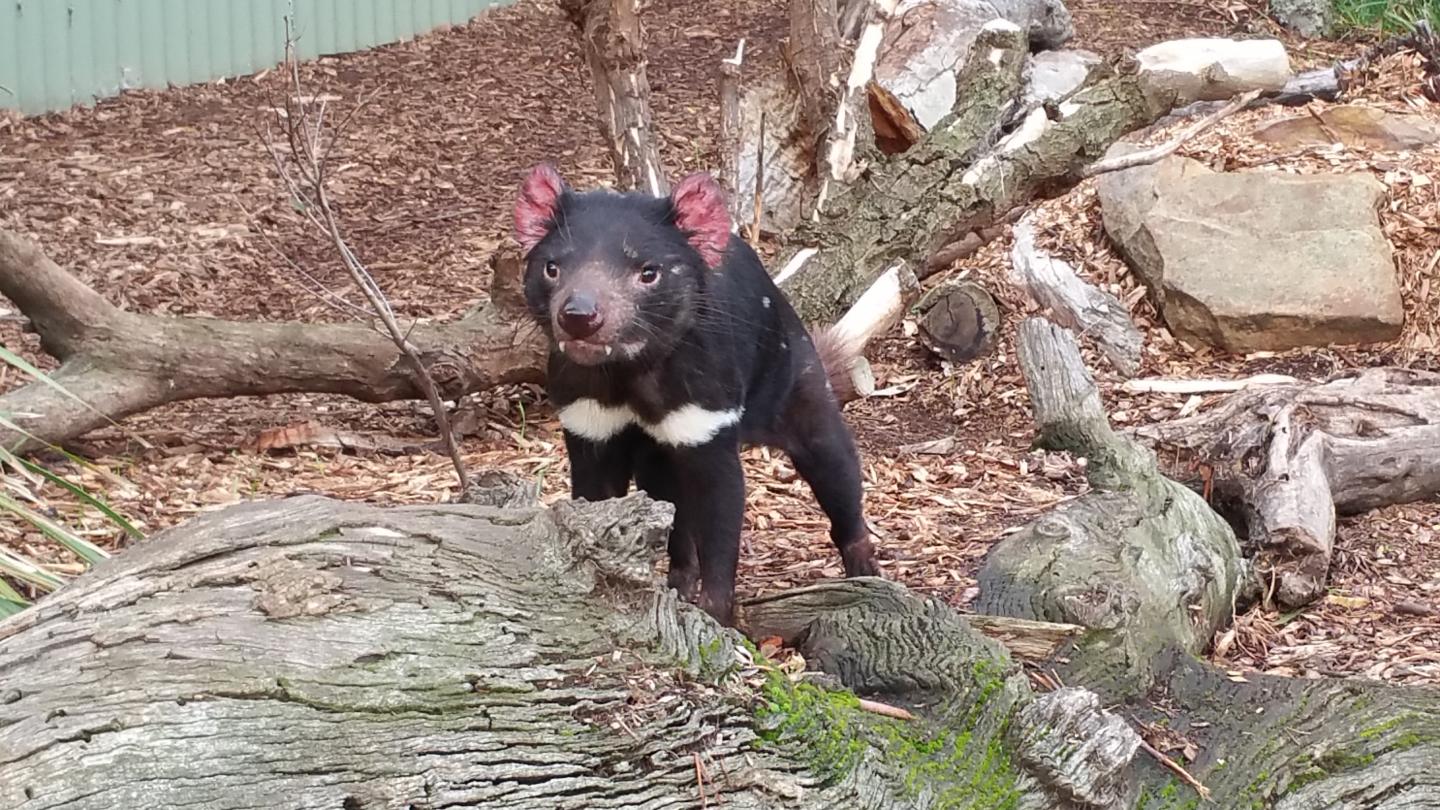
Credit: Andrew S. Flies
Morris Animal Foundation-funded researcher Dr. Deanne Whitworth, and her colleagues at the University of Queensland, have taken the first step toward developing an effective treatment for devil facial tumor disease (DFTD), which is decimating Tasmanian devils in the wild. The team's findings were recently published in Stem Cells and Development.
The University of Queensland team has been exploring the possibility of using stem-cell therapy to eradicate tumor cells from Tasmanian devils suffering from DFTD, a deadly transmissible cancer unique to this species. But first they had to find ways to grow and maintain marsupial stem cells, a feat that has not been realized until now.
Dr. Whitworth and her team successfully generated induced pluripotent Tasmanian devil stem cells in the laboratory. The team generated the cells as a first step toward developing a novel and effective treatment for devil facial tumor disease.
"Since its discovery in 1996, DFTD has decimated 95 percent of the devil population," said Dr. Whitworth. "It is estimated that within 20 to 30 years, the devil will be extinct in the wild. Our work is moving us closer to finding a strategy to prevent the spread of DFTD and to cure animals already infected with the disease."
Induced pluripotent stem cells are cells that have been reprogrammed back to an embryonic stem cell-like state. The generation of these special cells from humans and other mammals has paved the way for the expanding field of stem cell research and new therapies. However, generating marsupial stem cells proved to be a little trickier, possibly due to the unique biological growth mechanisms of marsupials compared to other mammals.
"Dr. Whitworth's findings are an exciting development in the field of stem cell research," said Dr. Kelly Diehl, Senior Scientific Programs and Communications Adviser at Morris Animal Foundation. "Their findings give hope to wildlife researchers and managers trying to stop the advance of this terrible disease."
DFTD is a form of transmissible cancer passed from one devil to another through biting, a common behavior that takes place during feeding and mating. The vast majority of infected Tasmanian devils die within three to six months of developing visible tumors. Primary tumors typically develop on the face or inside the mouth, and quickly grow into large tumors that metastasize to the internal organs.
Currently there is no cure for or preventive against DFTD and researchers are racing to find ways to save these iconic animals. The University of Queensland team hopes that the devil stem cells may one day be used to kill existing tumors or provide immune protection against DFTD to help save Tasmanian devils from pending extinction.
###
About Morris Animal Foundation
Established in 1948, Morris Animal Foundation is dedicated to improving and protecting the health of animals through scientific innovation, education and inspiration. Our investment in research has yielded life-saving vaccines, new treatments for critical diseases, superior screening tests and advanced diagnostic tools. We respond to emerging animal health threats that endanger entire species, and make new discoveries in basic animal biology to support applied research. With every study we fund – more than 2,600 to date – we strive to advance the science of veterinary medicine, honoring the founding principles of Dr. Mark L. Morris Sr., and benefiting animals worldwide.
Media Contact
Sean Andersen-Vie
[email protected]
720-639-3293
@morris_animal
http://www.morrisanimalfoundation.org
Original Source
http://www.morrisanimalfoundation.org/about-maf/press-room/press-releases/stem-cell-research-provides.html?utm_medium=app_email&utm_source=lp_app&utm_source=task_activity http://dx.doi.org/10.1089/scd.2017.0224





